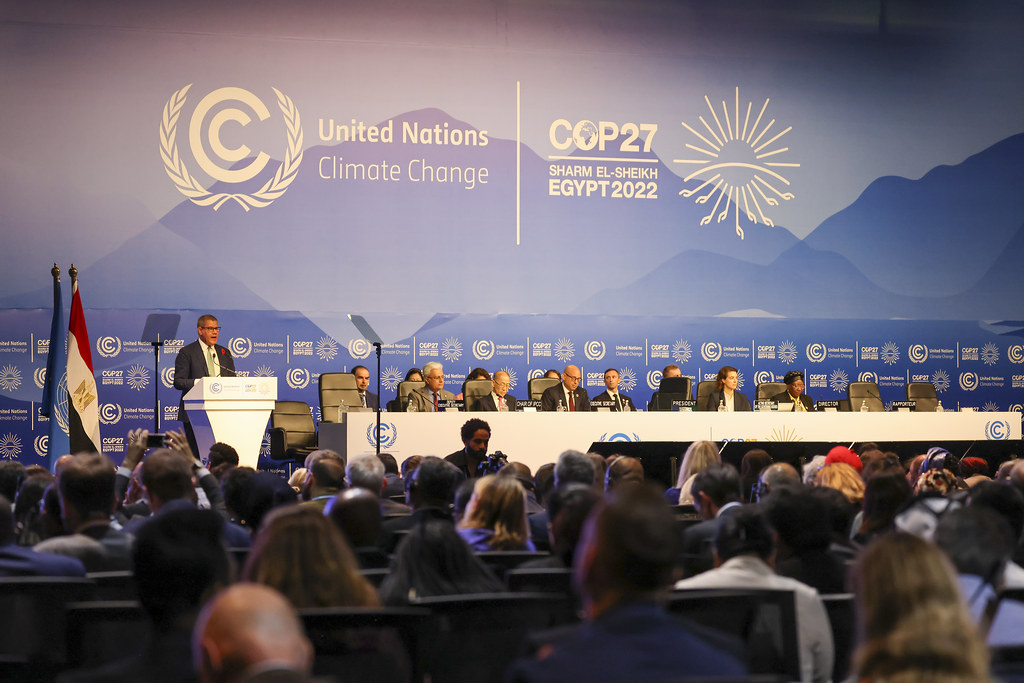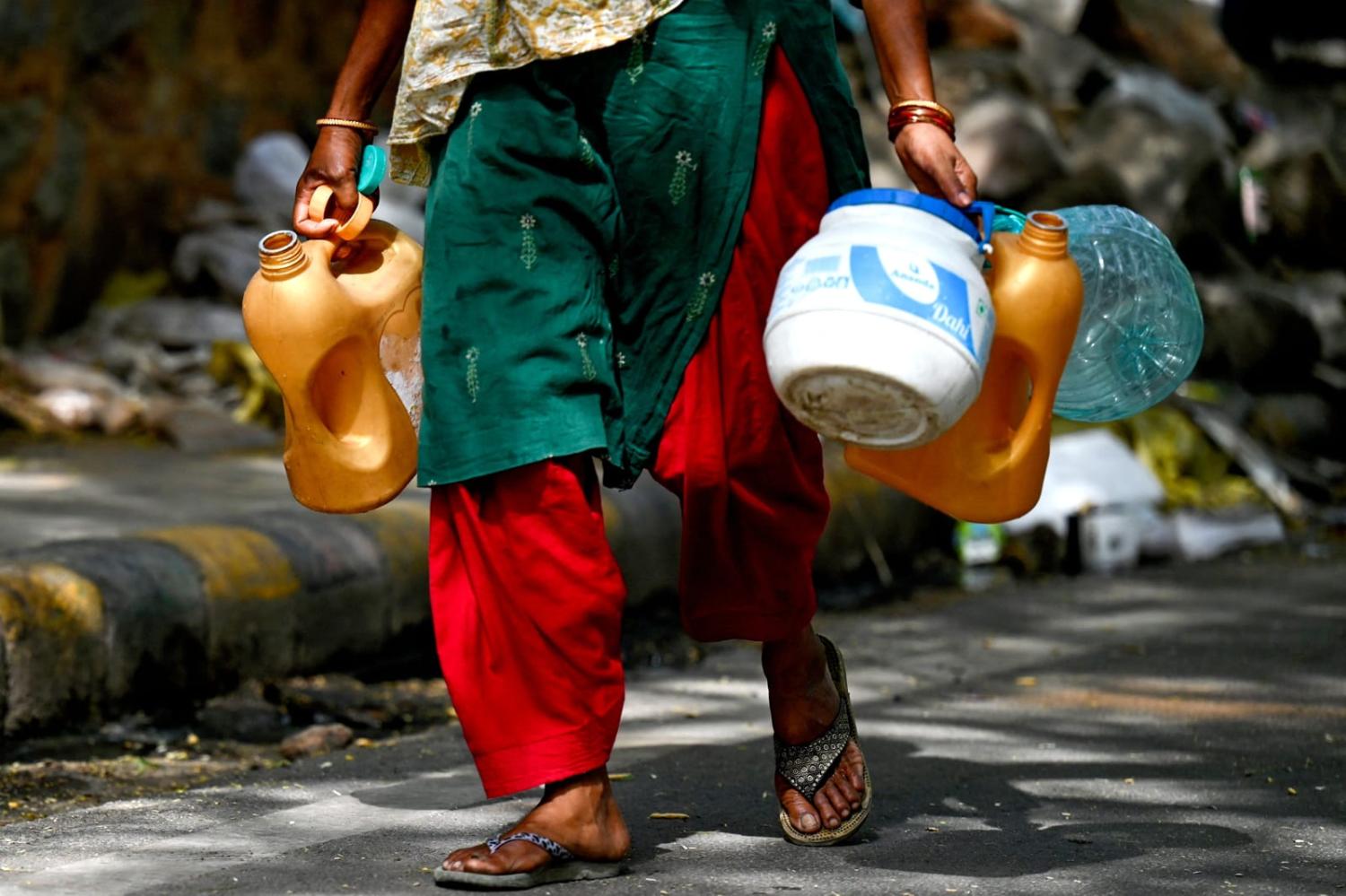What does gender have to do with global climate change negotiations?
Climate change is not an inherently gender discriminatory phenomenon – but its social impacts are. The gendered impacts of climate change are multitude and complex, triggered by gendered power structures that underscore societies. Gender considerations and inclusivity in negotiations are, therefore, imperative to inclusive climate action.
For example, well-documented gendered consequences of climate change are observable through water access and its related complexities.
Papua New Guinea faces extreme water vulnerabilities that are exacerbated by climate change. Due to socially constructed gender roles affiliated with water, women bear the brunt of this burden. For example, among other care-taking duties, women and girls are largely responsible for daily water collection. During the dry season, this can take up to five hours each day. This is not only a physically demanding task in dangerous climatic conditions, but also leaves women and girls vulnerable to attack, precludes them from school, and from earning an income.
Growing evidence also indicates that two-thirds of child marriages occur in regions with higher-than-average climate risks, often owing to the financial incentive of bride price that may temporarily alleviate a family’s resource struggles.
Injustices are also shouldered by non-binary and transgender people, suffering similar – and sometimes more severe – consequences. Transgender people are less likely to evacuate their homes during climate-related disasters out of fear of societal persecution. They are also more likely to be overlooked during disaster responses, often neglected by the humanitarian workers tasked to rescue them.
Importantly, these gendered consequences are not isolated to the “developing world”.
Australian bushfires, exacerbated in severity by climate change, exemplify this. The 2009 Black Saturday bushfires and 2019–20 Australian bushfires triggered an increase in domestic violence resulting from increased community tensions, of which women suffered disproportionate impacts.
Hence, climate change plays the role of a threat multiplier that exacerbates existing gender inequities. If left ignored, these dynamics are likely to escalate as climate change does.
In December, the United Nations Framework Convention on Climate Change (UNFCCC) will hold the annual Conference of the Parties (COP), where global climate leaders gather to negotiate how the international community will mitigate and adapt to anthropogenic climate change. The UNFCCC’s COPs are critical to enabling global climate action. They have facilitated some rare moments of international coordination on climate change, including the Kyoto and Paris agreements.
However, as has been much noted, this year’s COP will be held in the United Arab Emirates and led by the CEO of a fossil fuel company. In these circumstances, it is more relevant than ever to ask whose voices will be represented at the global forum. And more importantly, whose will be missing, and what consequences will this have on progress?
A gendered power divide is palpable across these negotiation spaces. For example, COP27 in 2022 saw an unbalanced gender split, with 63% of delegates being men and 37% women (and non-conforming genders disregarded entirely in the count). This is despite women being more likely to join climate action civil society groups.

Another problematic element of the enormous scale of COP28 is the siloing of the big issues caused by, and causing, climate change. This impact is clear when it comes to the position of gender at COPs.
For instance, to manage the quantity of key themes at COP28, each day of the two weeks will address a dedicated issue. This year, one of these “thematic days” will be gender. On this day, the 300 different pavilions of countries and organisations will organise their own superficial slew of “gender” events. That will mean 300 events, with gender experts spread across the pavilions – and notably not at the actual negotiations.
This follows the trend of previous COPs (such as at COP27) whereby negotiation “plenary” spaces are physically distanced from the pavilions, where civil society actors are kept occupied.
Siloing gender to a single day encourages gender to be viewed as a singular issue – a “women’s issue” – and not as a factor that disadvantages marginalised genders across every issue discussed at COP28. This threatens the meaningful integration of gender considerations in other discussions by countries, their negotiators and other organisations – under the guise that they already dealt with it on the fifth day at COP.
Climate action efforts frequently narrow-in on traditionally “masculine” domains that hold higher value in society, from economics and traditional sciences to energy transitions. These approaches are vital to furthering climate action and necessitate attention. Yet, they lack longevity without a full integration of feminist perspectives, given how deeply gender underscores power distributions in the world.
Women harbour critical knowledge that can be mobilised to elevate climate action efforts. This is illustrated by women’s prominent role in agriculture, subsistence farming and food production, which equips them with unique knowledge, including nature-based solutions. Hence, gender inclusivity is critical to escalating climate action.
The futile and paradoxical nature of approaching climate issues through greenwashed “business-as-usual” mechanisms is widely acknowledged. Feminist perspectives offer alternative and transformational approaches that deserve consideration across climate policies.
Gender equity is not only imperative in its own right, but a necessity for meaningful climate action. Elite negotiators at COP28 must prioritise gender-specific climate impacts and vulnerabilities. Stronger action is desperately needed – not just for women and non-conforming genders, but for the resilience of collective society.

